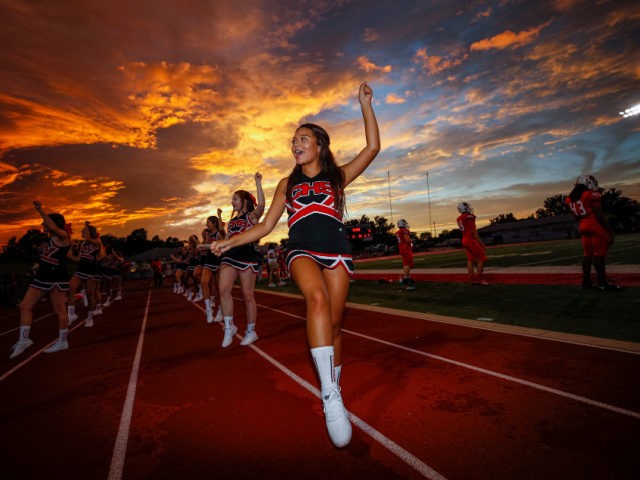The U.S. Supreme Court heard a case Wednesday involving a student at Mahanoy Area High School in Mahanoy City, Pennsylvania, who was kicked off the school’s cheerleading team after taking to Snapchat to call out the school with profanities for allegedly telling her she needed to spend a year on the junior varsity (JV) team before making it to varsity — while an incoming freshman student made it on the varsity team, skipping JV.
The student, known as “B.L.,” made the JV cheerleading team as a freshman, and was hoping to make varsity as a sophomore, only to be disappointed to again be placed in JV. Meanwhile, an incoming freshman made the varsity team, skipping JV entirely.
The next day, B.L. texted the cheerleading coach, asking, “do you have to d[o] a year of jv before you could make varsity?” and when the coach responded, “No,” B.L. replied, “That’s stupid[,] [b]ut okay[.] [My mom] was just wondering how [the freshman] made varsity.”
That following Saturday — while off campus — B.L. posted two messages to Snapchat. The first message consisted of a photo of herself and a fellow classmate giving their middle fingers to the camera, with the caption, “Fuck school fuck softball fuck cheer fuck everything.”
The second message, consisted of the text: “Love how me and [another student] get told we need a year of jv before we make varsity but that[] doesn’t matter to anyone else?”
B.L. was subsequently removed from the cheerleading team for the school year, after coaches decided that her Snapchat posts “could impact students in the school,” and had violated team rules.
Coaches said B.L. was disciplined in order “to avoid chaos and maintain a team-like environment,” explaining that “posting negative information” can create “chaos within our squad.”
After B.L.’s parents appealed to the athletic director, the principal, the superintendent, and the school board — only to find that all of them stood by the coaches’ decision. They filed a federal lawsuit, which the U.S. Supreme Court heard on Wednesday.
The Court in 1969 held in Tinker v. Des Moines Independent Community School District that public school officials may regulate speech that would materially and substantially disrupt the work and discipline of the school. The justices will now decide whether Tinker applies to a student’s speech that occurs off-campus.
Justice Stephen Breyer noted that while B.L. used “unattractive swear words,” he does not see much evidence of her conduct causing “material and substantial disruption.”
“She used swear words, you know, unattractive swear words, off campus,” Breyer said. “Did that cause a material and substantial disruption? I don’t see much evidence it did.”
“And if swearing off campus did, I mean, my goodness, every school in the country would be doing nothing but punishing,” Breyer added.
Justice Brett Kavanaugh said that he believes the coach may have “overreacted,” adding, “a year’s suspension from the team just seems excessive to me.”
“My reaction when I read this, she’s competitive, she cares, she blew off steam like millions of other kids have when they’re disappointed about being cut from the high school team or not being in the starting lineup or not making all league,” Kavanaugh said.
“And I think that’s just emblematic of how much it means to kids to make a high school team,” Kavanaugh added. “It is so important to their lives — and good coaches understand the importance and they understand the emotions.”
Justice Sonia Sotomayor pointed out that “kids basically talk to their classmates. Most of their conversation is about school. Most of their exchanges have to do with their perceptions of the authoritarian nature of their teachers and others.”
“And why isn’t this any different than just that the coach of this team took personal offense?” Sotomayor asked. “She spent a few minutes talking to students, reporting this incident. How is that a substantial disruption, number one?”
“And how is this, the nature of the speech, such that it intends to provoke disrespect when she put it to a page that was supposed to disappear and it was only a classmate taking a snapshot who showed it to anybody?” Sotomayor further inquired.
The U.S. Supreme Court is expected to reach a decision before July.
The case is Mahanoy Area School District v. B.L., No. 20-255 in the Supreme Court of the United States.
You can follow Alana Mastrangelo on Facebook and Twitter at @ARmastrangelo, on Parler @alana, and on Instagram.

COMMENTS
Please let us know if you're having issues with commenting.